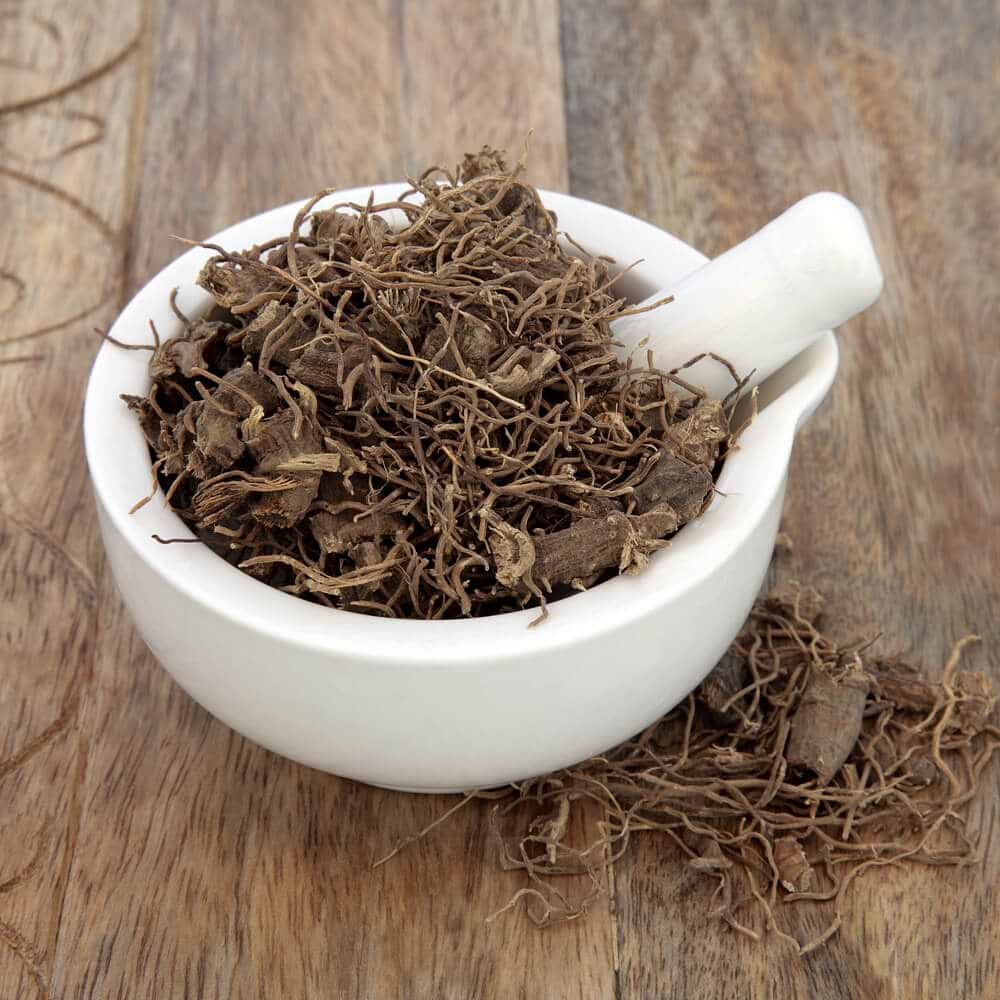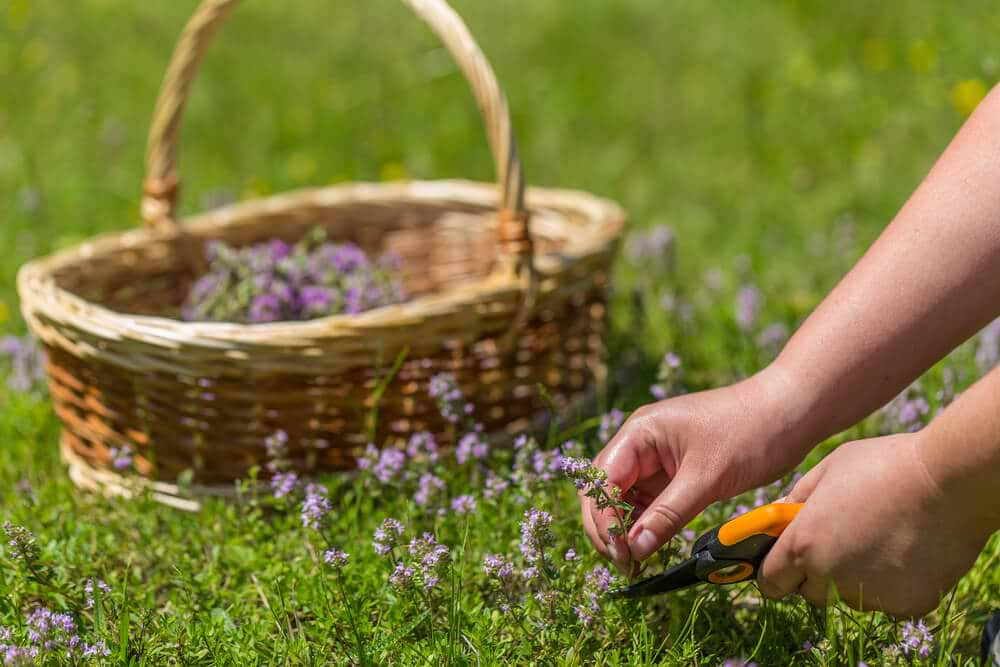Imagine waking up one morning, feeling slightly off-kilter, and noticing subtle changes—a little more warmth, a slight shift in mood, or a few nights of restless sleep. These are the gentle whispers that suggest your body is beginning the transition of perimenopause, a natural phase that marks the onset of menopause.
For many, this journey can seem daunting, filled with unexpected symptoms like hot flashes, emotional fluctuations, and unpredictable sleep patterns.
But here’s the good news: you’re not alone, and this phase doesn’t have to take over your life. Nature offers incredible allies—herbs and holistic strategies—that can help you restore balance, comfort, and vitality during this transformative time.
Yet, what if you saw this as a time of disruption instead of seeing it as an opportunity for renewal and self-discovery? Perimenopause might be signaling transformation, but it’s also an invitation to harness the incredible power of nature and holistically align your body’s rhythms.
By embracing this chapter, you open doors to exploring a treasure trove of herbal allies and holistic practices that can support you with grace and strength.
Understanding the Science Behind Perimenopause Symptoms
Perimenopause is the transitional phase leading up to menopause, typically beginning in your 40s (though it can start earlier or later). During this time, your ovaries gradually produce less estrogen and progesterone, hormones that have orchestrated your body’s rhythms for decades. Think of your hormones as the conductors of an orchestra—when they lose rhythm, the entire symphony feels out of tune.
These hormonal shifts can trigger a range of physical and emotional symptoms, including:
-
Irregular periods
-
Mood swings, restlessness, and irritability
-
Memory lapses and difficulty concentrating
In addition to these, other menopausal symptoms, such as joint pain and changes in libido, can also occur.
The silver lining? With the right approach, you can bring harmony back to your life.
Symptoms of Perimenopause
Perimenopause is a natural transition that occurs in women, typically between the ages of 40 and 55, as the body prepares for menopause. During this time, hormone levels fluctuate, leading to various symptoms that can vary in severity and duration. Common symptoms of perimenopause include:
-
Irregular Menstrual Cycles: Your periods may become unpredictable, with changes in flow and frequency.
-
Hot Flashes and Night Sweats: Sudden waves of heat and sweating, often disrupting sleep.
-
Vaginal Dryness and Decreased Libido: Reduced estrogen can lead to discomfort and a lower sex drive.
-
Mood Swings and Emotional Changes: Hormonal shifts can cause irritability, anxiousness and mood swings.
-
Sleep Disturbances and Fatigue: Difficulty falling or staying asleep, leading to daytime tiredness.
-
Weight Gain and Changes in Body Composition: Metabolism slows down, making it easier to gain weight.
These symptoms can be challenging to manage, but there are various natural remedies and lifestyle changes that can help alleviate them. Embracing a holistic approach can make this transition smoother and more manageable.
Why Herbs Work: Nature’s Gentle, Effective Solutions
Unlike synthetic treatments that can suppress or override your body’s processes, herbs work in synergy with your natural systems. Herbs are a key component of complementary and alternative medicine, offering natural solutions that work in harmony with your body.
They gently support hormonal balance, soothe emotional turbulence, and address physical discomforts. Herbs have been trusted for centuries to guide women through life’s transitions—and modern research is catching up to their efficacy.
Herbal Supplements and Allies for Perimenopause
Harnessing Herbal Wisdom: Your Path to Relief
Incorporating herbal supplements into your routine can be a gentle and effective way to manage perimenopausal symptoms. From alleviating hot flashes to stabilizing mood swings, herbs offer time-honored and individually adaptable remedies.
Understanding which herbs are most supportive during this phase can help you tailor your approach, maximizing benefits and minimizing disruptions. Whether you’re new to herbal remedies or refining your existing regimen, tapping into the wisdom of nature can provide comfort, balance, and resilience as you navigate this pivotal time in your life.
-
Black Cohosh: This North American herb has been a trusted remedy for centuries, especially for easing hot flashes and night sweats. However, some studies raise concerns about its safety. By interacting with estrogen receptors, black cohosh helps smooth out the hormonal fluctuations that cause these disruptive symptoms. It’s often taken as a tea, capsule, or tincture.
-
Chaste Tree (Vitex): Chaste tree has a long history of use for hormonal imbalances. By supporting progesterone production, it alleviates irregular cycles, breast tenderness, and irritability—common challenges during perimenopause. Add it to your morning routine as a tincture for steady support.
Stress and Emotional Support: Soothing the Mind
Stress has a profound impact on physical and emotional health, particularly during periods of hormonal change like perimenopause. Managing stress effectively is vital for alleviating symptoms and maintaining overall well-being.
By incorporating calming practices and stress-reducing herbs into your routine, you can nurture a peaceful state of mind that supports your body's natural balance.
-
Motherwort: Known as the “mother’s herb,” motherwort calms the nervous system and offers emotional relief during turbulent times. It’s especially helpful for calming the nervous system and irritability. Brew it as a tea or take a tincture before bed for a peaceful wind-down.
-
Ashwagandha: This adaptogen is a powerhouse for stress resilience. Ashwagandha supports adrenal health, which is critical in hormone production during perimenopause. It also combats fatigue and brain fog, helping you stay sharp and energized. This adaptogen is also beneficial for postmenopausal women, helping to manage stress and maintain emotional balance.
-
Rhodiola: Another adaptogenic herb, rhodiola boosts mood and mental clarity while reducing stress. It’s ideal for tackling the emotional rollercoaster of perimenopause and can be taken as a capsule or tincture.
Symptom Soothers: Targeted Relief for Hot Flashes
Navigating through perimenopause can be an overwhelming experience marked by a myriad of symptoms such as fluctuating moods, hot flashes, and irregular periods. Many women seek relief from these challenges and use natural remedies for support. Understanding and embracing these gentle, time-tested solutions allows you to find comfort and regain balance during this pivotal life phase.
-
Sage: This culinary herb has a hidden talent: reducing the frequency and intensity of night sweats and hot flashes. Sage tea is a simple, soothing way to incorporate this herb into your daily routine.
-
Evening Primrose Oil: Another supplement traditionally used to support women's health during menopause. It can help alleviate symptoms such as hot flashes, mood swings, and breast tenderness.
-
Adaptogens - In addition to ashwagandha and rhodiola, other adaptogens like holy basil and eleuthero can bolster your body’s response to stress while improving energy and focus.
Hot Flashes and Night Sweats
Hot flashes and night sweats are two of the most common symptoms experienced by menopausal women. These symptoms occur when the body’s thermostat is disrupted, causing a sudden surge in body temperature. This can lead to intense heat, sweating, and discomfort, often followed by chills.
Causes and Symptoms
The exact cause of hot flashes and night sweats is not fully understood, but they are believed to be related to the decline in estrogen levels. This hormonal shift affects the hypothalamus, the part of the brain that regulates body temperature, leading to these sudden and often unpredictable episodes.
Natural Remedies
Several natural remedies are effective in improving vaginal health and libido:
-
Lubricants: Water-based lubricants can help reduce friction and discomfort during sex, making intimacy more enjoyable.
-
Estrogen Creams: Topical estrogen creams can help improve vaginal health and reduce dryness, providing much-needed relief.
-
Herbal Supplements: Herbal supplements such as black cohosh and red clover may help improve vaginal health and libido by supporting hormonal balance.
-
Lifestyle Changes: Regular exercise, a balanced diet, and stress management techniques such as meditation and yoga can also help improve vaginal health and libido.
It’s essential to note that while these natural remedies can effectively alleviate menopause symptoms, they may not work for everyone. It’s always best to consult a healthcare provider before starting new supplements or making significant lifestyle changes. By taking a proactive approach, you can maintain vaginal health and enjoy a fulfilling intimate life during and after perimenopause.
Lifestyle and Nutrition: Building a Holistic Foundation for Women's Health
Beyond herbs, lifestyle and nutrition play pivotal roles in supporting your body through perimenopause.
-
Prioritize Sleep: Hormonal shifts can disrupt your sleep patterns. Create a calming bedtime ritual, limit screen time before bed, and consider a motherwort tincture to help you wind down.
-
Move Daily: Exercise is your best ally for maintaining bone health, reducing stress, and boosting energy. A mix of strength training, cardio, and flexibility exercises works wonders.
-
Nourish Your Body: Fuel your body with a balance of macronutrients and micronutrients.
-
Protein: Lean meats, fish, eggs, and plant-based options support muscle and bone health.
-
Healthy Fats: Avocados, nuts, seeds, and fatty fish promote hormone production and radiant skin.
-
Complex Carbs: Whole grains, fruits, and veggies provide sustained energy and fiber.
For more information on dietary supplements and managing menopausal symptoms, consult resources like the North American Menopause Society.
WishGarden Herbs: Radical Remedies for Real Life
At WishGarden, we craft herbal formulas that work in sync with your body, helping you tackle life’s moments with confidence. Our perimenopause-supporting blends feature herbs like black cohosh, chaste tree, and adaptogens to bring balance when you need it most.
Our commitment to women's health drives us to create formulas that support the female reproductive system and alleviate menopausal symptoms. With over 40 years of experience, we’re passionate about creating safe, effective, and sustainable herbal remedies. Our products are liquid for rapid absorption and come with no fillers, gums, or sugars—just pure plant power in its most effective form.
Embracing Your Perimenopause Journey with Confidence
Perimenopause is a unique journey, but you don’t have to navigate it alone—or unprepared. Herbal remedies can be particularly effective in treating menopausal hot flashes, providing natural relief from this common symptom.
Your perimenopause journey is distinctly yours, and taking a compassionate, patient approach is crucial as you explore what works best for your body. Lean on holistic methods and consult with healthcare professionals to tailor a plan that supports your well-being.
Start small: brew a cup of sage tea, add ashwagandha to your daily routine, or embrace a bedtime ritual with motherwort. These simple steps can make a world of difference in how you feel.
Perimenopause presents unique challenges, yet it also offers growth and self-discovery opportunities. By harnessing the power of natural remedies, you can find effective relief from symptoms like hot flashes, night sweats, and mood swings.
Incorporating herbs such as sage and ashwagandha, along with lifestyle adjustments including a balanced diet, daily exercise, and adequate rest, lays a strong foundation for navigating this transition.
With curiosity and courage, you can embrace this phase as a time to nurture yourself, prioritizing health and harmony while writing the next vibrant chapter in your life. Your journey through perimenopause is merely a phase, not a defining identity, and with nature’s wisdom and personal resilience, you have the tools to navigate it gracefully and joyfully.
You’ve got this—perimenopause doesn’t define you. It’s simply a chapter in your life story, and with the wisdom of nature, you can write it with strength, resilience, and grace.
Rebecca Younger is passionate about herbs and women's health. She aspires to plant seeds of inspiration within her community about plant medicine and healthier ways of life. She studied Herbal Medicine at Herbalism Roots in Denver and is a certified Doula through the Matrona Foundation. She is the Brand Communications Specialist at WishGarden Herbs.
For educational purposes only. This information has not been evaluated by the Food and Drug Administration. This information is not intended to diagnose, treat, cure, or prevent any disease, or to sell any product.
Recommended Products
Further Reading












